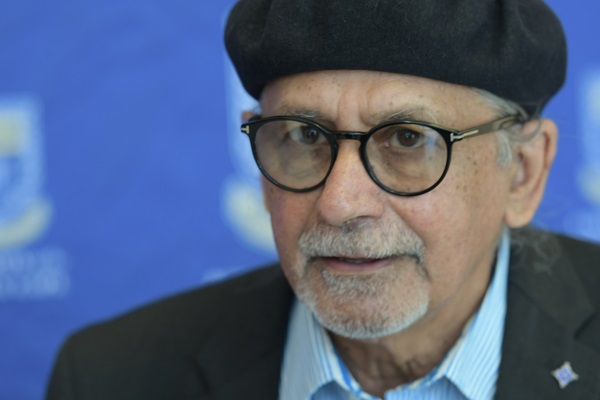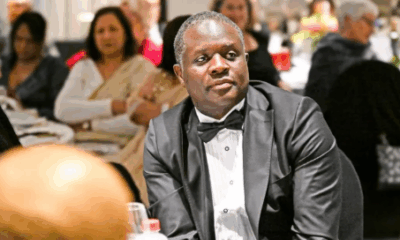News
South Africa Bids Farewell to Rashid Lombard, the Man Who Framed Our Freedom

Photographer. Storyteller. Jazz lover. Cultural bridge builder.
South Africa has lost one of its most treasured cultural voices. Rashid Lombard—the man behind the lens of some of our country’s most unforgettable moments—has passed away at the age of 74. President Cyril Ramaphosa, echoing the sentiments of artists, activists, and citizens alike, called him a “fearless chronicler of injustice and a joyful architect of culture.”
For many, Lombard wasn’t just a photographer. He was a witness. And more than that, he was a messenger, reminding us through his photos, festivals, and friendships that South Africa’s story has always been one of struggle, survival, and soulful celebration.
A Life Built on Both Grit and Groove
Born in Port Elizabeth in 1951, Lombard moved to Cape Town in the early 1960s—just as apartheid was intensifying. Trained as an architectural draughtsman, he switched paths and became a news photographer. But photography, for Lombard, was never just about capturing images. It was about truth. And justice.
He photographed defining moments in our national memory: the release of Nelson Mandela in 1990. The euphoria of the first democratic elections in 1994. The everyday defiance of ordinary South Africans who refused to be erased.
Later, Lombard would channel this same drive into another passion: jazz. He didn’t just promote music—he turned Cape Town into a global jazz destination. As founder of the Cape Town International Jazz Festival (originally the North Sea Jazz Festival), he gave a stage to local talent and connected South Africa to the world’s sonic heartbeat.
A Visual Legacy Etched in Memory
President Ramaphosa honoured Lombard’s extraordinary contribution by reflecting on his role as both an observer and a maker of history.
“Rashid Lombard’s fearless depiction of apartheid’s endemic inhumanity and violence and his compassionate focus on the lives of oppressed communities is a powerful record of our struggle,” said the president.
His lens revealed truth, but it also uplifted joy. Ramaphosa noted that Lombard’s ability to celebrate the “diversity and vibrancy of our nation” wasn’t just artistic—it was revolutionary. And he did it all with “passion and humility.”
A Final Salute
Lombard will be laid to rest on Thursday, in accordance with Muslim rites. Tributes have poured in on social media, with jazz musicians, fellow photographers, and activists calling him a “giant of Cape Town culture” and a “visionary whose work shaped the soul of the nation.”
One Twitter user wrote: “If you’ve ever danced at the Cape Town Jazz Fest or cried at a photo of Mandela walking free—thank Rashid Lombard.”
Others remembered how he mentored young photographers, pushing them to tell stories with purpose, not just style.
Honoured, But Always Humble
In 2014, Lombard was awarded the National Order of Ikhamanga (Silver)—one of South Africa’s highest honours—for his contributions to the arts and culture. But he rarely spoke of accolades. His focus remained on the work: telling stories, building festivals, and showing the world that South Africa’s past pain and present beauty could exist in the same frame.
More Than a Legacy , A Rhythm
In a nation still searching for cohesion and healing, Rashid Lombard leaves behind more than just photographs or jazz posters. He leaves a rhythm. A way of seeing. A blueprint for how to document pain without losing hope. And how to build joy—loud, inclusive, and unforgettable.
Rest in peace, Rashid. You didn’t just witness history. You helped write it—with a camera in one hand, and a saxophone wailing somewhere in the background.
{Source: The Citizen}
Follow Joburg ETC on Facebook, Twitter , TikTok and Instagram
For more News in Johannesburg, visit joburgetc.com



























